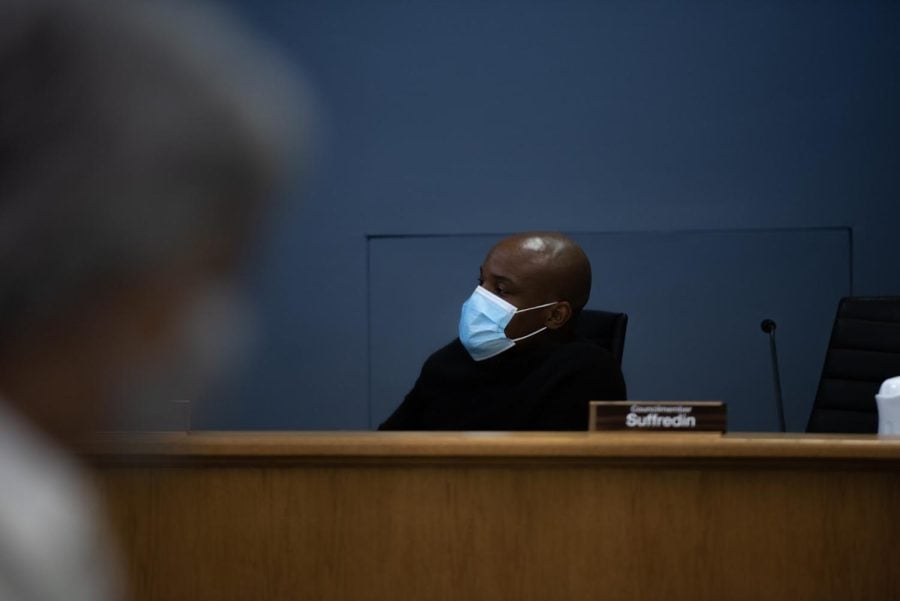City Council discusses ARPA priorities, creates Participatory Budgeting Committee in special meeting
Daily file photo by Nick Francis
Ald. Bobby Burns (5th). Councilmembers met Dec. 6 to discuss numerous proposals for the use of remaining federal funding from the American Rescue Plan Act.
December 14, 2021
Councilmembers and city staff discussed long-term proposals for federal funds received from the American Rescue Plan Act during a Dec. 6 special City Council meeting.
The council has already committed more than $15 million of the city’s $43 million in ARPA funding to continue Evanston’s COVID-19 response, replace revenue lost due to the pandemic and fund grant management and compliance. The remaining $28 million is open for spending on projects across various categories, including economic development, social services, affordable housing and participatory budgeting.
Ald. Bobby Burns (5th) emphasized the need for the council to set clear priorities on which categories and projects should receive funding first. He said spreading the limited funds too thinly would result in little impact overall.
“If we just say, ‘Yeah, we’re going to spend money on all this stuff,’ I don’t think that’s the best way to do it,” Burns said. “Let’s figure out what we for sure want to have in Evanston and then work our way from there, figure out how much that’s gonna cost and see how much we have left.”
Paul Zalmezak, the city’s economic development manager, spoke to councilmembers about several proposals aimed at promoting Evanston’s economic growth. Proposals include sponsoring workforce training programs, investing in business district improvements throughout the city and providing direct funding to develop new sites such as The AUX and Northlight Theatre.
Aging infrastructure discourages customers from shopping in Evanston and returning in the future, Zalmezak said. He said physical improvements such as expanding outdoor dining and replacing streetlights and benches are especially important for business districts.
“We know, based on feedback we’ve received from small businesses and also some larger businesses, that we’re not looking as good as we possibly could,” Zalmezak said. “Downtown outside of Fountain Square, the last time it went through a reinvention phase was in the late ‘90s, and it’s showing its age.”
Staff also proposed committing $2.5 million to fund projects selected through participatory budgeting, in which residents directly propose and vote on funding allocations for public projects. Numerous Chicago wards use participatory budgeting to allocate parts of their ward budgets, including the 49th Ward, which borders Evanston to the southeast.
Sarah Flax, the city’s housing and grants manager, advised councilmembers to not delay early action on participatory budgeting due to the extended amount of time the process takes to fully develop.
“Everything I’ve seen says you need about a year to plan and implement,” Flax said. “This is not something that should be done rapidly, because that really does away with the feeling that people have any say.”
The council later voted 6-0 to create a Participatory Budgeting Committee to begin planning a process for Evanston. Ald. Devon Reid (8th) will chair the new committee, which will also include Burns, Ald. Jonathan Nieuwsma (4th) and Mayor Daniel Biss.
Email: [email protected]
Twitter: @alexhairysun
Related Stories:
— City Council approves 2022 budget after monthslong ARPA fund use debate
— City Council retains COVID-19 response staff with ARPA funds, delays other allocations
— City Council discusses hot-button issues in 2022 proposed budget


